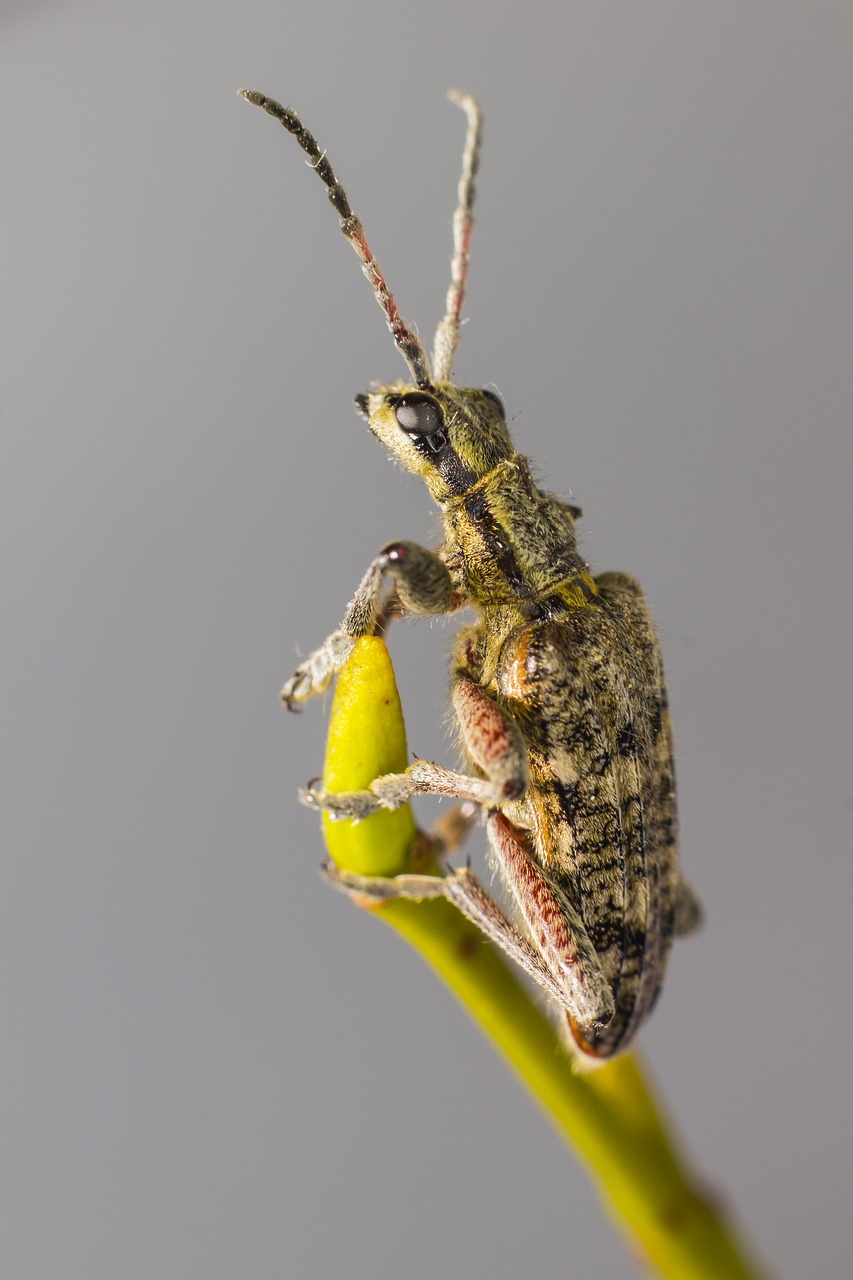The Black-spotted Longhorn Beetle (Rhagium mordax) is a species of longhorn beetle belonging to the Cerambycidae family. Here’s an overview of this fascinating insect:
- Appearance: The Black-spotted Longhorn Beetle is characterized by its elongated body, which can reach lengths of up to 20-25 millimeters. It has a glossy black exoskeleton with distinctive white spots or patches scattered across its wing covers (elytra). The antennae are long and slender, typical of longhorn beetles, and may be as long as or longer than the body.
- Habitat: These beetles are commonly found in deciduous and mixed forests across Europe and parts of Asia. They inhabit dead or decaying wood, where both larvae and adults feed and develop. They prefer mature trees with rotting wood, as this provides suitable breeding and feeding grounds.
- Life Cycle: The life cycle of the Black-spotted Longhorn Beetle typically begins with females laying eggs in crevices or cracks of dead or dying trees. The larvae hatch from these eggs and tunnel into the wood, where they feed on the decaying material. Larval development can take several years, depending on environmental conditions and the availability of food. Once mature, larvae pupate within the wood before emerging as adults. Adults are usually active during the summer months.
- Ecological Role: As with many other species of longhorn beetles, the Black-spotted Longhorn Beetle plays an essential role in forest ecosystems by aiding in the decomposition of dead wood. By breaking down decaying material, they contribute to nutrient recycling and soil enrichment, which benefits other organisms within the ecosystem.
- Threats and Conservation: While the Black-spotted Longhorn Beetle is not considered threatened on a global scale, habitat loss and degradation pose significant challenges to its populations. Efforts to conserve and protect old-growth forests and preserve deadwood habitats are crucial for ensuring the survival of this species and maintaining healthy forest ecosystems.
Overall, the Black-spotted Longhorn Beetle is a fascinating insect with unique adaptations and ecological significance. Its presence in forested habitats highlights the interconnectedness of species within ecosystems and underscores the importance of biodiversity conservation efforts.
Visited 869 times, 9 visit(s) today
Views: 1781
Subscribe to the newsletter:
